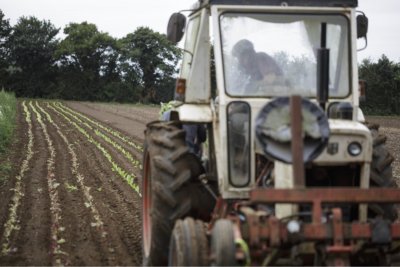News • Sustainable Farming Campaign
The case for extending the remit of the Groceries Code Adjudicator
The government should take the opportunity now to support the UK’s food supply chains by extending the remit of the Groceries Code Adjudicator so that it is able to tackle unfair purchasing practices.
The UK’s food system is on a precarious footing. Most suppliers producing and processing food that ends up on our supermarket shelves are vulnerable to unfair purchasing practices that can send competent businesses into bankruptcy, undermine competition and lead to a worse deal for consumers.
These practices might be buyers cancelling orders at the last minute, making deductions from invoices or asking suppliers to pay unexplained fees.
Brexit means that farmers and small food businesses supplying the UK are grappling with new uncertainties. The additional business risk posed by unfair trading practices threatens the sustainability of our food supply chains.
The Groceries Code Adjudicator (GCA) is the regulator that currently prevents the UK’s ten biggest supermarkets purchasing unfairly from their direct suppliers, and it has made good progress in tackling the bullying behaviour of some retailers.
However, its remit is too narrow since it does not cover indirect suppliers to supermarkets. This means many farmers and small food businesses are not protected by the Adjudicator or Code. What is needed is for the GCA’s remit to be expanded to cover the widest possible extent of the food supply chains that serve our supermarkets.
This is not a new idea. In 2008, the Competition Commission looked at groceries supply chains and proposed the establishment of the Groceries Code Adjudicator to tackle unfair trading practices. Their report also anticipated that the GCA’s remit may be insufficient, noting that if these practices continued the government ‘should consider the introduction of appropriate measures, including the extension of … the role of the Ombudsman [GCA]’.
Sustain was a founder member of The Groceries Code Action Network - a group of organisations calling for exactly the solution proposed by the Competition Commission almost a decade ago. The network includes civil society organisations representing interests as diverse as food waste, farming, international development, agricultural sustainability, labour rights and consumers. The full list of organisations is below.
The government has completed a consultation on the GCA and is due to publish its conclusions this autumn. We hope that BEIS and Defra will take this opportunity to extend the Adjudicator’s remit and provide much-needed support to groceries suppliers.
Those seeking to understand how an extended Adjudicator could operate should refer to the below documents:
This document suggests a plausible model of operating for the extended GCA. It covers questions including what the limits of an extended remit could be, the possible legal basis for extension and how the extended regulator might be funded. This is intended as a basis for further discussion.
This companion document answers ten questions commonly posed by policy-makers and industry representatives on the case for extending the GCA.
For more information on either of these documents, or on the work of the Groceries Code Action Network, see these pages, please get in contact with tom.wills@traidcraft.org or vicki@sustainweb.org
The Groceries Code Action Network includes: Traidcraft Exchange, Oxfam GB, Fairtrade Foundation, Sustain, Tenant Farmers Association, National Federation of Women’s Institutes, The Food Foundation, Feedback, National Farmers Union of Scotland, Think Global, Food Ethics Council, Bakers, Food and Allied Workers Union, Bananalink, Global Justice Now, British Independent Fruit Growers’ Association, War on Want.
Published Wednesday 20 September 2017
Sustainable Farming Campaign: Sustain encourages integration of sustainable food and farming into local, regional and national government policies.





